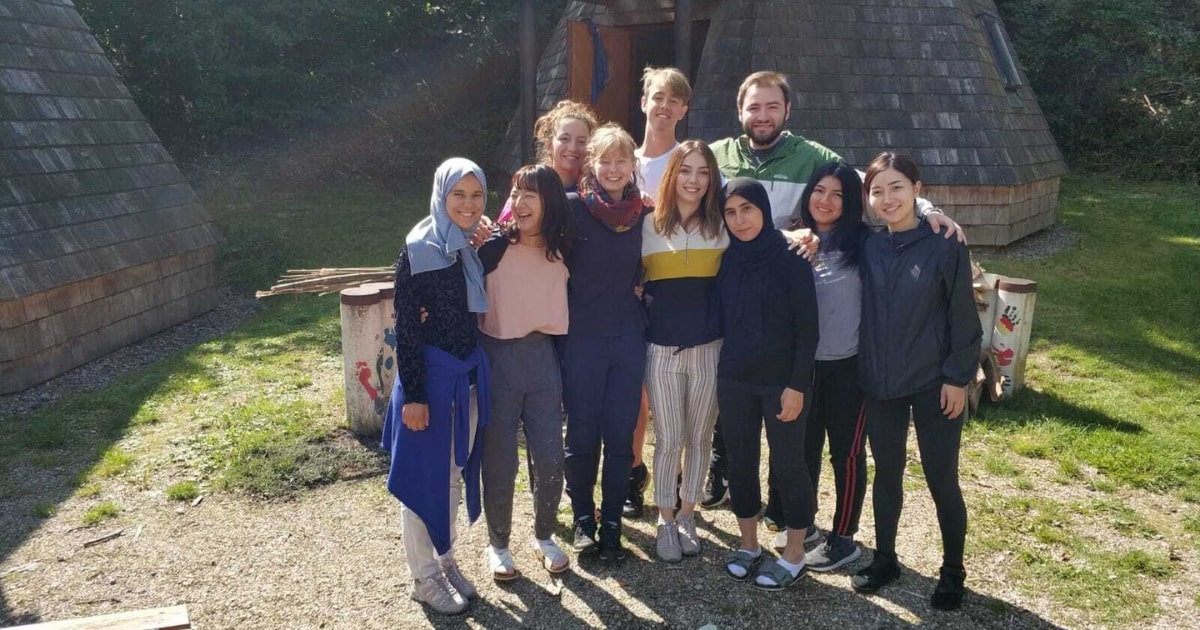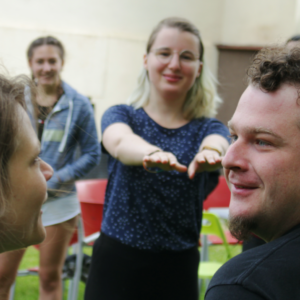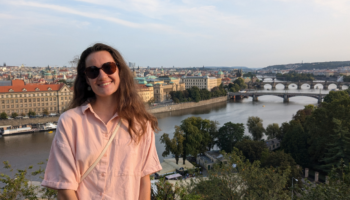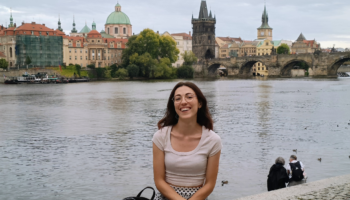As a former student of intercultural communication and cultural project management I was confronted with several theories and models during my studies: about forms of inter- and transculturality, language, communication and social power structures within societies. No doubt, I loved it.
However, my fellow students and me were always thriving to go beyond the formal and technical context. This is also what is kind of expected from you if you want to start working within intercultural fields, whatever branch it might be. And it can be also the most exciting part.
So when I came across INSPIRIT through IBG, a close German partner organisation of INEX-SDA, I thought it would be an ideal opportunity for me as a student to get in touch with non-formal education.
INSPIRIT – a way of self development through interculturality

Making yourself comfortable with a leading position – the preparation
During the preparatory phase of the program we participated at one of the campleaders trainings. This training offered the possibility to gain knowledge about intercultural group dynamics. For me, however, it was mainly the opportunity to reflect on my expectations towards being in a leading role, dealing with diverse conflict situations and towards my own leading style. Since we used many different games, didactic methods and practical examples, the quite theoretical input was easy to implement. I was happy to have used that as a basis for leading my workcamp later on and I felt prepared – although during this activity I understood that preparation is a lot, but not everything. Being creative and spontaneous is a precious quality when leading a workcamp and similar projects.
Another essential aspect of this training, was to learn about non-violent communication. Although, in my workcamp we were luckily never confronted with severely difficult situations, it surely helped me to be more patient and attentive to the needs of the others, especially during conflicts or situations of disagreement. I understood that every group works differently, but can work euqually well as long as the communication functions. I also understood that it would be partially my responsibility as a leader to create ways for the communication to work smoothly within my group.
Discovering yourself as a leader – leading your workcamp
My first workcamp to lead might have been the most ideal one to start with: we were a relatively small, but diverse group of 10 volunteers from seven different countries with the aim of doing some gardening work in the Youth Centre in Kell am See, an idyllic and remote village close to Trier, Western Germany. Everyone was a little reserved during the start. But precisely in such a calm group with mostly reserved people on the first sight, it is important to be able to read between the lines and different layers. Many wouldn‘t directly tell when there was a problem or couldn‘t do so because of the language barrier. It turned out to be crucial to create a safe space, so that everyone would feel comfortable to talk. In the beginning, it was sometimes difficult for me to see if everyone understood basic information I told. I had to find ways to ensure they understood, for example through talking to them in private when they felt safer to speak up and ask questions. Fortunately, our project leader who gave us our tasks turned out to be the most down-to-earth person I have ever met and experienced with workcamps. It was easy to coorperate, he understood our group dynamic well and also that some might take longer to understand what they have to do. Moreover, I wanted to make sure we made decisions together, democratically as a group, not me as a single leader. And for that, information and comprehension are important.
Another crucial aspect I learned was how to mediate and coordinate amongst the volunteers in a calm and relaxed way. In the end, I was happy as well that they were so understanding with each other, everyone respected each others bounderies, and after some time even for the most reserved volunteer the ice broke. Being with the group taught me to be more patient – especially with me and my expectations – and that it is always worthy to trust in the group process itself and that there will be many great moments to share.
One of my favorite ones was, for example, when a usual quiet and cautious volunteer got the courage to play the piano in our venue in front of everyone. She was really proud, as was I and the rest of our group. I loved to see how the volunteers cared for each other and that we grew together like a family. A family that I partially helped creating.
However, putting the great memories aside, there were also a few moments of exhaustion from my side. At some points I felt like a mediator, a translator, a coach, an entertainer, a taxi driver, a mom, sister and friend altogether. Most nights in the first week I didn‘t sleep well due to some worries I had. Eventually, it got better, though, and during my next leading project I felt much more relaxed.
Reflexion on your leading competences – the evaluation
During the last but not at all least phase of the project, all of the INSPIRIT participants from Germany, Italy and Czech Republic gathered for the overall evaluation. All gathered in Adamov, a small village in a nature reserve close to Brno in Czechia, we reflected on our experiences as leaders and on our skills we gained during the process. Not only to say that it was important to become aware of what I learned and achieved, it was truly great to share it with the other campleaders, to listen to their happy moments or moments of struggle.
In the end, INSPIRIT supported me in finding my own way of leading, in being self-conscious about my skills and, most importantly, in learning that living in intercultural environments is what truly makes me happy and is something I most definitely want to continue working with in future. I am doing a voluntary year at INEX-SDA after all.
If you like to read more about the INSPIRIT experience, you can also have a look at Aleks‘ report (Czech language only) or watch our documentary (Czech language, English subtitles) about the program and the workcamp leader education cycle.







